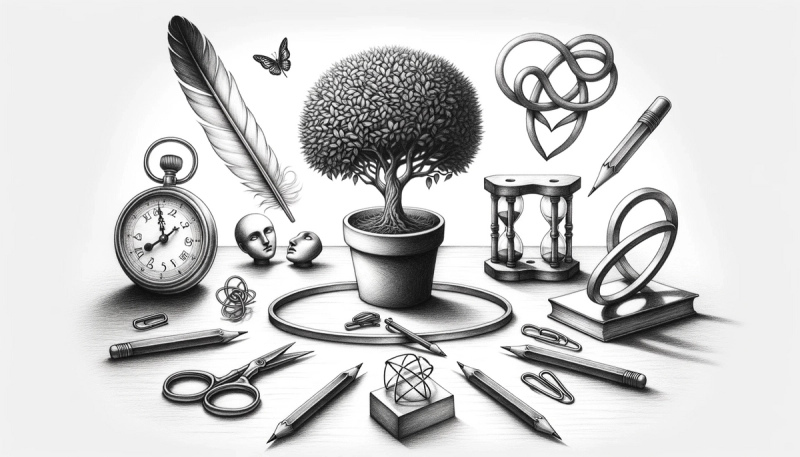Writing poetry is a good exercise for any writing, because of the control and mastery required to make it good.
4 min read
·
By Emil Danielsen
·
December 24, 2023

Any writing is practice for writing, but for the most effective learning we want to turn to the medium that requires the most control and precision; poetry. Control and precision is what we need anyway for any writing challenge, but a long form medium, such as this, affords us a lot of room for sloppy writing without punishing us. Can’t we convey our meaning with these few words? No worry! Just add some more words and it’ll surely be well enough understood! Instead, let us turn to some poetry to understand how these can help us become more effective writers.

Suffice
Will these words
suffice?
Or do I need
many more
unnecessary words?
Only making this
poem uglier and uglier
until you cannot take it any longer?
Will these words
suffice?
How about these next ones?
In this poem I have chosen to play around with brevity as a concept in itself. The opening statement asks the question, but then answers itself by going on and on, ever making the poem less elegant. Again that same question is asked, now serving to highlight that same sentiment, with a break in between to show that indeed, they could stand on their own. But then the next poetic question was asked, “How about the next ones?” But there are no next ones. The silence or unwritten therefore becomes part of this poem.
For a whole paragraph now, I have effectively only restated what the poem already said. This brevity and sharpness of control is available to us in every sentence, not just un poetry. Repetition in prose should be used with as much strategy as it’s omission in the poem - a way to emphasise on the larges scale what the writing is about.

Gimme
Gimme a pack
o’ gum
an’ a advil
or something
I dunno.
Gimme gimme
no
the one on the right
Plastic bag sir?
In UX, empathy is a core competency. When we talk to them, design for them, and imagine ourselves to be in their position, we should be able to imagine a part of them that we put into our programs. And to motivate ourselves to do the job, we sometimes need to feel their needs as our needs. A way to practice this, is to do explorative or speculative UX writing, wether is it to explore how their days could be different, or to aid our understanding of a problem or domain.
In this last poem the poet imagines an interaction, maybe at a gas station or corner store, between a cashier and a customer. The language of the customer is very limited, uncouth. They have trouble asking for what they want. But still the cashier remains polite, even though the customer does not even answer their question.
Beyond requiring control, these small glimpses into someone else’s life may help build that empathy - and memorising poetry like this maybe also help us hold information about relationships like this longer in our memory.
Earlier generations used to be able to recite a few lines of poetry from memory. It was part of courtship, and of being taken seriously as an intellectual that you could recite a verse or two from relevant poetry. That time has long since passed, but poetry will still have some function for us if we choose to carry it with us.
Finally, I recommend writing poetry for those of you who love a puzzle. Not because a poem in itself is a puzzle, but because packing a lot of information into a short format is an enjoyable experience, like doing a crossword or solving a sudoku.
As a good bye to you, I’d like to present a short love poem I wrote to a mathematician. I hope you will find writing poetry to be equally a rewarding experience as I have fund it to be.

The geometry of love
Euclid never knew
that in the geometry of love
two hearts on parallel paths
will intersect and join
beyond time and space.